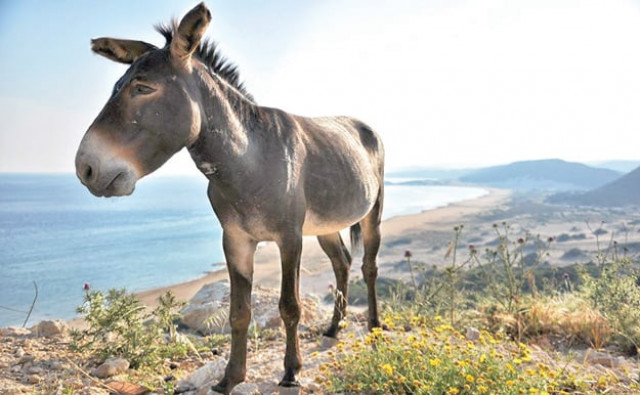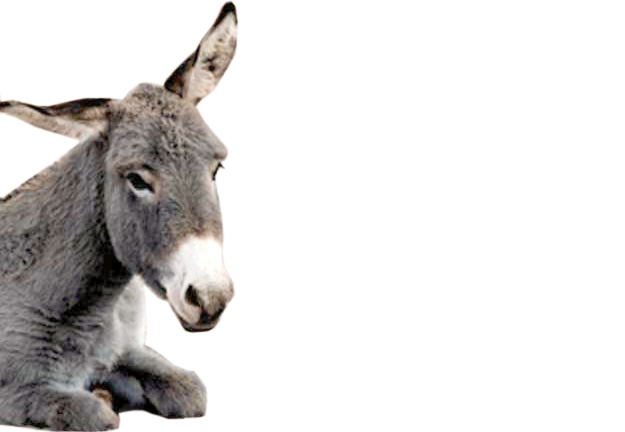I'll forever be your beast of burden
Donkeys' numbers dwindling fast across Punjab; census under way to determine population

PHOTO: FILE
However, it is not as if the retired beasts are spending the rest of their days leisurely grazing the fields. Their numbers are, in fact, dwindling fast.
K-P govt planning to export donkeys to China
A second census is underway to determine the population of donkeys in Punjab and assess the outcome of the Donkey Conservation and Breed Improvement Farm at Bahadurnagar in Okara. The absence of a proper breeding programme, and to some extent the high use of the consumption of donkeys in Chinese medicine, is to blame for the waning population. In an effort to address hide export and usage in Chinese medicine, the federal government had already placed a conditional ban in September 2015.
Even after the ban, several attempts were made to export several thousand hides out of Pakistan. A recent case in this series was witnessed in Jhelum, according to the Livestock and Dairy Development Department. It said 30 donkeys were bought from the open market, many of which were later slaughtered before the police managed to raid the location based on information provided by the department.
During a National Assembly session in January this year, it was revealed that Pakistan had expor¬ted over 141,000 donkey hides, mostly to China, over four years before the imposition of the temporary ban in September, 2015.

The usages of donkey hide in Chinese medicine contributed majorly to the decrease in the animal’s population. The purported human consumption of donkey meat also raised many an eyebrow in the province.
Punjab Food Authority, to this date, was struggling to rebuff the notion that donkey meat was actively being served in eateries of the province. However, officials in the livestock department revealed the Chinese community residing in Pakistan was the main buyer of donkey meat.
Donkeys and sharks dominate assembly session
They said that Chinese were also interested in launching a donkey breeding programme in the country to meet their own demands. Department officials revealed that similar to human beings, cousin marriages in donkeys also led to many abnormalities.
The first census was taken in 2015 to assess the population of equine animals of the province. The department, which had a data of 1.1 million equine animal population in the province, was expecting a slight increase. However, results showed that only 300,000 equine animals were left in the province of which just 49,739 were donkeys.
The Livestock and Dairy Development Department, keeping in view the sharp decline in the population of donkeys, started a Donkey Conservation and Breed Improvement Farm at LES, Bahadurnagar, Okara in 2016.
The breeding programme, started in 2017, has bred over 1,300 donkeys. To assess the success of the initiative, the department has launched a census to determine the district-wise donkey population of the province.
Livestock Secretary Naseem Sadiq said the donkey’s utility for transportation in rural areas cannot be undervalued. He said a large number of the animals were also used on coal mining across the province. The secretary stated Punjab not only supplied donkeys around the country, but also exported them to counties like Iran and Afghanistan.
Donkey hide is used for the production of Chinese Ejiao which helps build body muscle and, enhance libido, improve blood deficiency and has anti-aging properties. It is also used for cosmetics and to cure dry coughs.
Published in The Express Tribune, October 4th, 2017.



















COMMENTS
Comments are moderated and generally will be posted if they are on-topic and not abusive.
For more information, please see our Comments FAQ